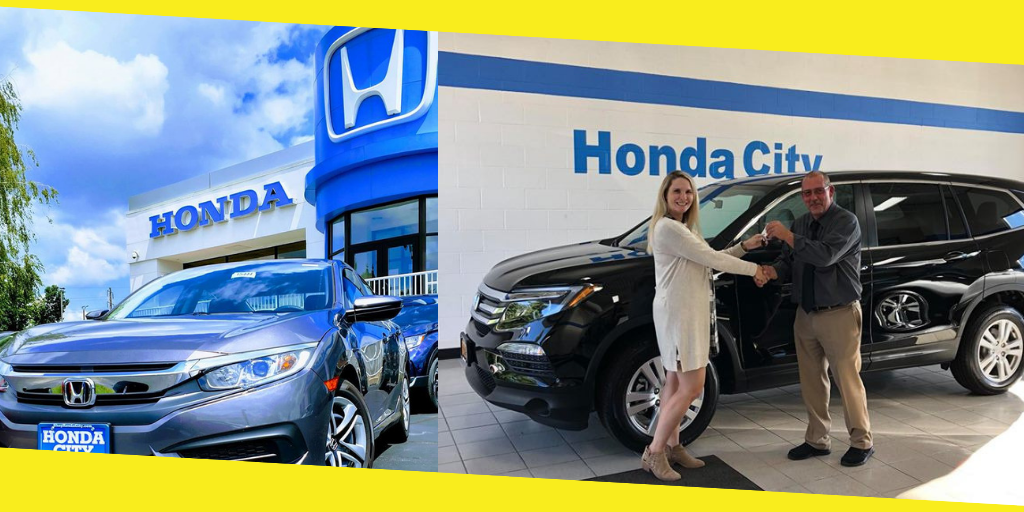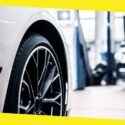Honda Used Car Dealer In Syracuse NY: 6 Tips For Buying One

Most used car buyers choose to get their car from franchised dealerships instead of privately sold ones, as most dealerships back their purchases up with inspections and reconditions the mechanical parts of the car. Some dealerships even include or offer extended warranties. These give the buyers the much-needed comfort of knowing that they’re buying a car that was maintained and warranted by a franchised dealership.
If you’re looking out to buy a used car, then continue reading this article as we will be giving you tips for buying one, and if you’re wondering about Honda used car dealerships in Syracuse, click here.
Here are 6 tips for buying a used car:
Contents
Toggle1. Research
Do some research on a particular car you’re interested in, and also take note of alternative cars that you may also consider. Read online reviews, customer reports, and magazine comparisons of the cars you want. Look for the dealership that offers the best value and pricing for the vehicles that you’re looking for.
You can also do a search on various online portals to determine if the dealership near you has the specific car you’re looking for; saving you the time of going personally to reach out to dealerships. Doing a Google search to a particular type of vehicle and a geographical identifier will usually do the trick. For example: “2015 Honda Civic Syracuse NY.”
2. Investigate
Thoroughly investigate the car — not just the price. It’s also important to know the vehicle’s history and mileage.
Here are some questions to ask regarding a vehicle’s history and mileage:
- Was the vehicle involved in any accidents?
Buying a vehicle that was previously involved in an accident doesn’t actually mean it’s broken. The car may have been involved in a minor accident that caused damage, but has already been fixed properly.
- Where was the vehicle from?
Knowing where the vehicle was driven previously can give you hints on the condition of its suspension system. If the car was from a city with broken and rough roads, the car’s suspension might not be as good compared to a car that was driven on smooth roads.
- What’s the vehicle’s mileage?
Buying a car with more than 60,000 km in mileage can mean that it will need more replacement parts, as some of its stock parts have already reached the end their running hours.
3. Check its maintenance history
Check the vehicle’s maintenance history. Was the car maintained regularly by the previous owner? Were there any reconditioning jobs done by the dealership? The best dealerships out there will always provide you with a complete copy of the vehicle’s maintenance history together with the completed reconditioning jobs they’ve done upon acquiring the car. Here are some maintenance records you should check:
- Tire alignment
- Battery renewal
- Spark plug renewal
- Air filter renewal
- Change oil schedules
4. Know the dealership’s policies
It’s vital that you read and understand the policies of your dealership. Does your dealer offer a money back guarantee? Most dealerships now are offering 2-day money back guarantees if you decide that the vehicle doesn’t fit your needs or exchange policies that allow you to return and exchange the car within a given period.
5. Ask if it’s a certified vehicle
Is the car certified as used? Some dealerships offer certified used car programs through their manufacturers. Although you’ll be paying more for a vehicle that’s certified as used, it can still be advantageous for you to buy one. Here are some of the benefits of buying a certified used car:
- Comprehensive maintenance programs
- Extended warranties
- Lower interest rates for financing
6. Test drive
It’s essential that before you consider buying a used car, you should test drive it first. Contact your dealership and make an appointment for a test drive. During your ride, also check for red flags such as:
- Check if there’s a knocking sound or resistance when you completely turn the wheel on both sides.
- Check for pedal sensitivity and steering play.
- Listen for squeaks or noises, especially when you’re turning at low speeds.
- Check the car’s parking features such as rear cameras and sensors.
Closing thoughts
Whenever you’re buying a used car, keep all these tips in mind before you make your final decision. Dealerships may vary from one to another, as some won’t change their asking price up front, and some will offer you discounts while you negotiate.
It’s always a good thing to get your car at a discounted price, but if it’s priced noticeably lower than other similar models in the market, there might be a bad reason for it
Recommended For You
Seven Interesting Things You Want To Know About Lamborghini
Most Inside
Most Inside offers high-quality recommendations and valuable updates to enhance all aspects of your life, providing premium guidance and enriching experiences.




